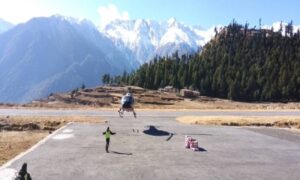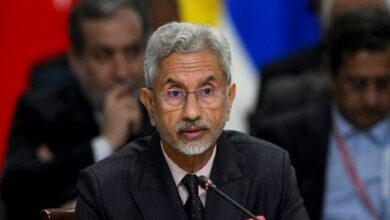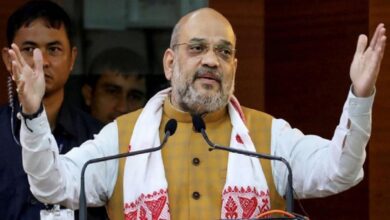TIA’s night-time closure expected to trigger peak season chaos
Nepal’s only properly functioning international aviation gateway, the Tribhuvan International Airport, will cut night-time operation hours to allow the construction of taxiways, and airlines have been told to curtail flights. The airport is scheduled to close between 10:00pm and 8:00am from November 8 to March 31, 2025.
This is expected to lead to more than normal chaos during peak autumn and spring tourist seasons at an airport that is congested even at the best of times, as per tour operators.On May 30, Civil Aviation Authority of Nepal (CAAN) had issued an AIP (aeronautical information publication) Supplement informing airlines of reduced operation hours to allow construction activities as per the airport’s master plan. During the construction phase, the airport will witness a 30 to 50 per cent reduction in international flights as it will operate for only 14 hours daily instead of 21. The capacity of TIA with IFR (instrument flight rules) flights is eight per hour.
As per the new international schedule 2024-25, flights from and to TIA will drop by 30 per cent from 410 to 287 per week for international airlines. CANN will reduce the number of flights by 50 per cent for international airlines operating more than two flights per day. For airlines with up to two flights per day, the number will be slashed by 30 per cent, while flights below this threshold remain unchanged.The authority has also limited domestic flights to 230 per day, including 139 for Buddha Air, 41 for Yeti Airlines, 31 for Shree Airlines, six for Sita Air, five for Tara Air, and four each for Nepal Airline and Summit Air from the set date.”We have issued a notice to airmen (NOTAM) for international airlines and they have submitted a reduced flight schedule.
The regulator has shown no biases or impartiality and the number of flights is subject to the schedule they have sent so far,” Gyanendra Bhul, information officer of CAAN, informed THT.Meanwhile, tour operators are anxious that the congestion and decreased number of flights will heavily distort demand and supply, increase airfares, and ultimately affect passengers.”Although airfares automatically become costlier during peak tourist seasons, the reduction of flight frequencies will affect the seating capacity of airlines forcing them to further increase prices,” Bhuvan Bahadur Pandey, managing director of Excel Travels and Tours, told THT.While acknowledging the need to upgrade TIA, Pandey expressed reservations against the timing.
“As September to November is peak tourist season, it would have been better if the construction was pushed when the traffic is lighter. The potential disruptions will likely affect the decision of tourists and Nepali migrant workers to visit Nepal,” he said.He also opined that the government should review its incentives for international airlines so that they would not be so reluctant to shift their operations to Bhairahawa and Pokhara.Similarly, Ramesh Thapa, immediate past president of Nepal Association of Tours and Travels Agents (NATTA) and managing director of Moon Sun Travel and Tours Pvt Ltd, echoed that the upgradation of TIA during peak tourist season will affect tourist inflow alongside surge ticket fares, making Nepal less attractive.”For instance, the price of a round trip ticket from the US is bound to cost anywhere from Rs 500,000 to Rs 650,000. As a ripple effect, the night-time closure of TIA will heavily impact economic activities and local businesses,” he said.According to him, some international airlines conducting operations to TIA have even suspended their service to Nepal anticipating reduction in the number of trekkers and mountaineers visiting the country.
“Even if the international flights are diverted to regional airports, it is unlikely that the domestic airlines will be able to handle the high demand,” he said.Also pointing out how the Nepal Airlines Corporation has been unable to operate effectively, Thapa said reduction in operation hours of TIA will cause the state to lose millions in revenue, which will contradict the government’s commitment to attract more tourists this fiscal year.





